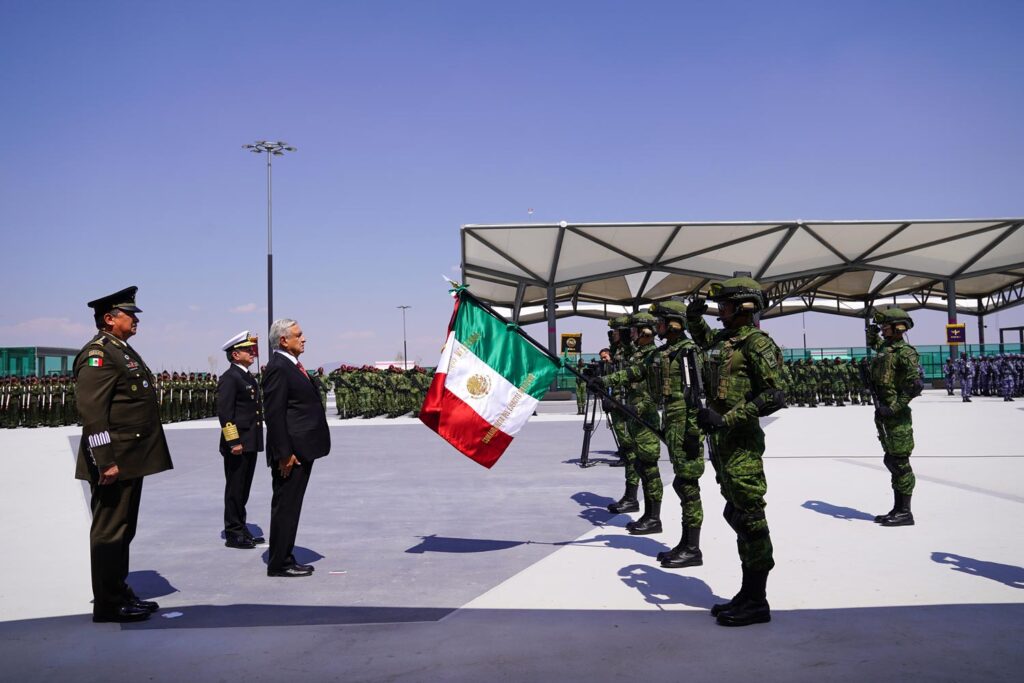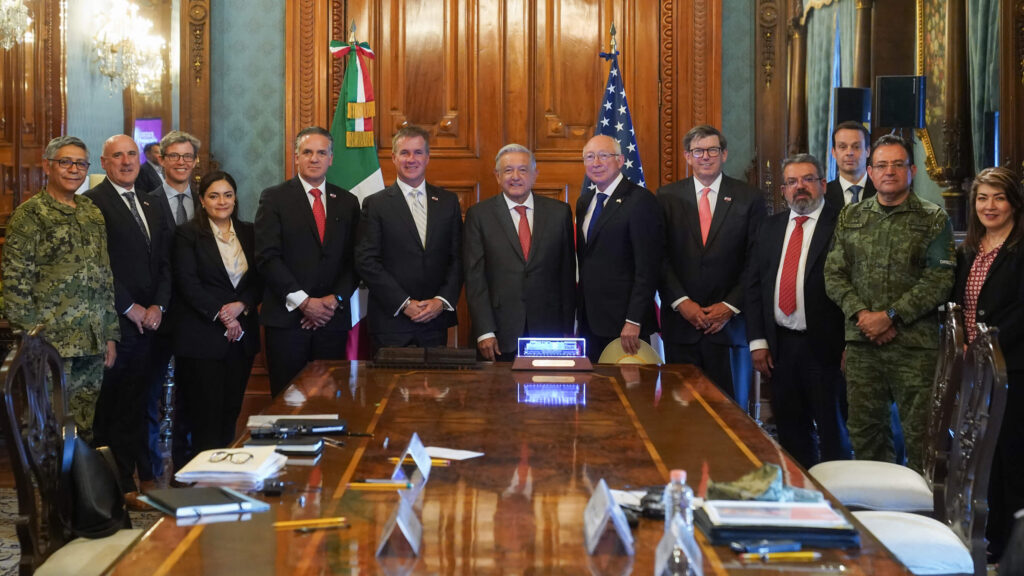Mexico City, Mexico — Mexico’s Senate may pass a bill that empowers the military to surveil and police the country’s airspace, adding to several traditionally civilian responsibilities which the armed forces have taken over since President Andrés Manuel López Obrador came to power.
In April 2022, López Obrador presented the Mexican Airspace Protection Law, which seeks to reorganize the institutions in charge of safeguarding Mexican airspace under the coordination of the Ministry of National Defense.
Currently the Mexican airspace is guarded by the Navigation Services in the Mexican Airspace (SENAM), an organism which operates under the coordination of the Ministry of Communication and Transport.
At its core, the initiative would create three organisms in charge of airspace security and policy making, with the military becoming the leading authority, overseeing and coordinating all federal dependencies involved.
Last week the bill blew through Mexico’s lower house, with López Obrador’s party, MORENA, and its allies fast-tracking the initiative with 263 votes in favor. The ruling party’s political opposition, such as the PRI, PAN, and PRD parties, abstained from voting.
Next week, the Senate will have to debate and vote on the initiative. If approved, the army will further advance its influence in formerly civilian-led tasks.
AMLO’s political opposition has said that the president’s latest move is an example of the consolidation of military power that the country has seen since taking office, including moving the formerly civilian-led National Guard under the control of the Secretary of Defense (SEDENA).
While most opposition political parties abstained from voting, Movimiento Ciudadano was the only party to denounce the initiative during the lower house ruling, issuing the only 26 votes against the bill.
Lower house lawmaker for Movimiento Ciudadani, Sergio Barrera, said that his party was not against Mexico’s military, but is worried the bill is “disrespectful” to the Mexican armed forces.
“By attributing to [the National Defense] powers that do not correspond to them, they are moving away from the purpose for which they were created. They are trying to militarize Mexican airspace and are duplicating powers already regulated in the Civil Aviation Law,” said Barrera.

Barrera’s complaint follows the persisting actions of López Obrador to integrate the military into civilian institutions. Under the current administration, the army has expanded its operations far past national security.
By a presidential decree, the military has been in charge of public security endeavors since 2019, one of the first structural changes secured by López Obrador. Initially a temporary measure while the newly created National Guard was fully formed, the military’s presence patrolling the streets has been extended until 2028.
In addition, the National Guard, originally a civilian-led police force, has now adhered to the Secretary of Defense, all officers and resources going to the army, following a bill pushed by López Obrador and approved by both houses of Congress.
Furthermore, the army is now in control of 31 custom offices in Mexico, and by the end of 2022, military officers supplanted all civilian personnel.
However, the army’s responsibilities were not limited to public security. Thanks to López Obrador’s support, the armed forces are also dedicated to constructing a 75-mile stretch of track of The President’s signature project, “El Tren Maya,” a railway that stretches across Mexico’s touristy Yucatán Peninsula.
In its totality, the over 900 miles of railroad that make up the Tren Maya will be left to the army, and the resources and benefits generated by the train will be part of the patrimony of the Secretary of Defense.








